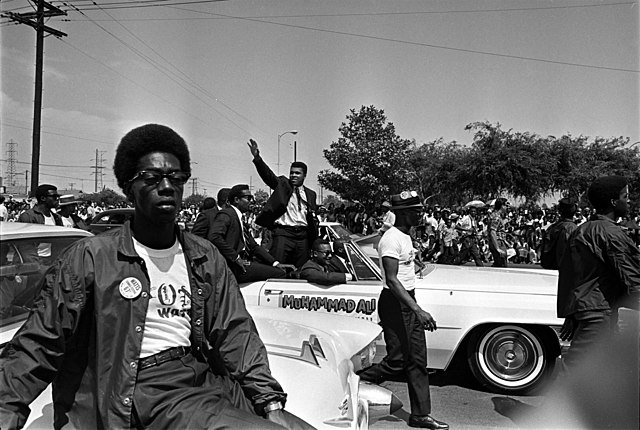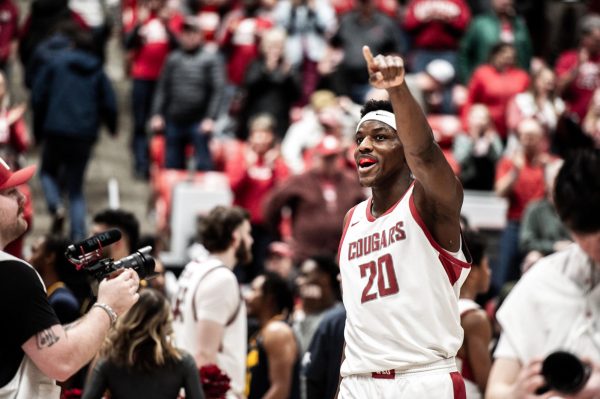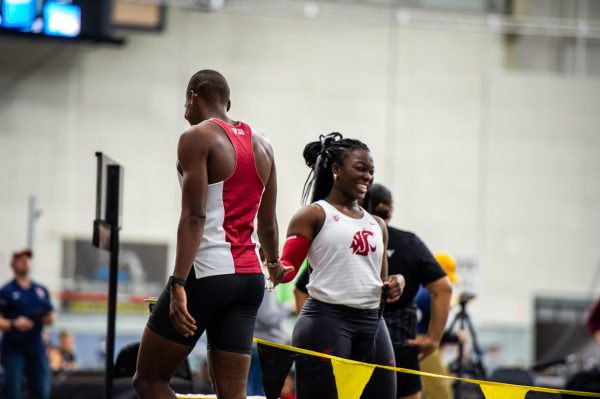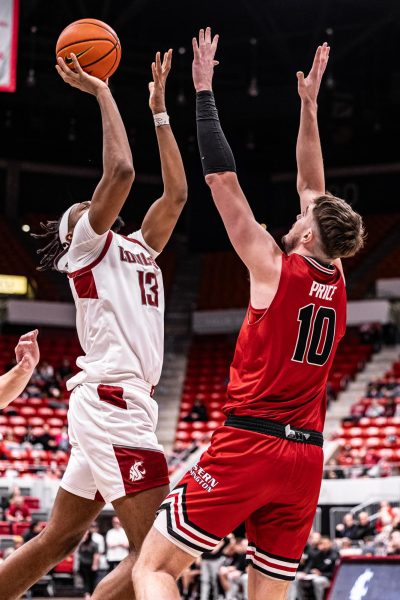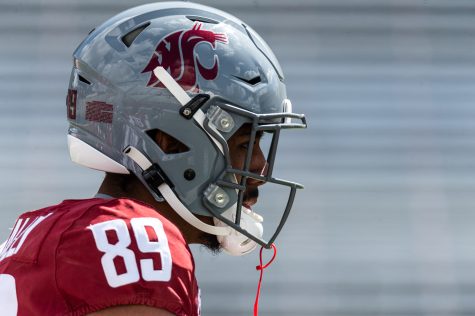Muhammad Ali: More than an athlete
Ali and his importance to the Civil Rights Movement
Courtesy of the Los Angeles Times
Muhammad Ali at the Watts Summer Festival. On August 14, 1967.
January 19, 2023
Muhammad Ali is one of the most significant athletes of all-time. What is less known is that Ali was a heavy contributor to the Civil Rights Movement for Black Americans. Ali spoke with Martin Luther King Jr. and Malcolm X. He was one of the early athletes to value the rights of his people over his competiton.
Ali won six Kentucky Golden Glove titles, two national Golden Gloves titles, and the light heavyweight gold medal in the 1960 Summer Olympics. Ali was the first to win the heavyweight title three times, he then successfully defended his heavyweight title 19 times.
Originally Cassius Clay, Ali changed his name in 1964 after he attended Nation of Islam meetings. He decided to accept the teachings of Islam under Malcolm X.
In 1967 Ali was drafted into the U.S. military. He refused to report, saying due to his religious beliefs and his opposition to the U.S. taking advantage of Black people, along with his disagreement with the U.S. involvement in Vietnam.
Ali said that black Black men were disproportionately drafted and killed in Vietnam. He was found guilty of draft evasion, his boxing title was taken away and he was banned from boxing for three years. Ali was not forced to serve prison time because of his numerous appeals.
In 1970 Ali was allowed to start boxing again and in 1971 the Supreme Court overturned his conviction. However, he missed three peak years of his career. After he got back in the professional ring, he won the title back when he was 32 and beat George Foreman, stating the very famous line “Float like a butterfly, sting like a bee.”
In 1990 Ali was able to help negotiate the release of 15 American hostages from Iraq. He became the United Nations Messenger of Peace for his work in 1998. Then, was awarded the Presidential Medal of Freedom in 2005.
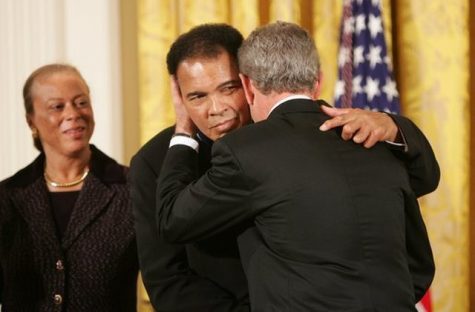
As Mrs. Lonnie Ali looks on, President George W. Bush embraces three-time heavyweight boxing champion of the world Muhammad Ali after presenting him with the Presidential Medal of Freedom Wednesday, Nov. 9, 2005, during ceremonies at the White House.
Martin Luther King Jr. spoke on Ali.
“No matter what you think of Mr. Muhammad Ali’s religion, you certainly have to admire his courage.”
In 1967 Ali and King were together for a fair housing rally in Louisville, Kentucky. Ali told King in front of the crowd and cameras:
“In your struggle for justice, freedom, and equality, I am with you.”
Ali is one of the greatest athletes of all time and is one of the most important athletes in the Civil Rights Movement to assist Black Americans. He set the standard for athletes to come after him.


